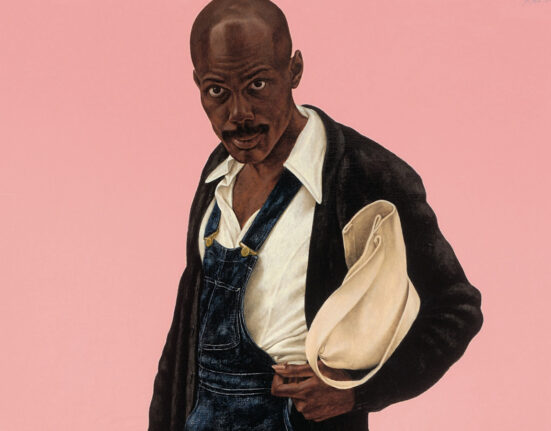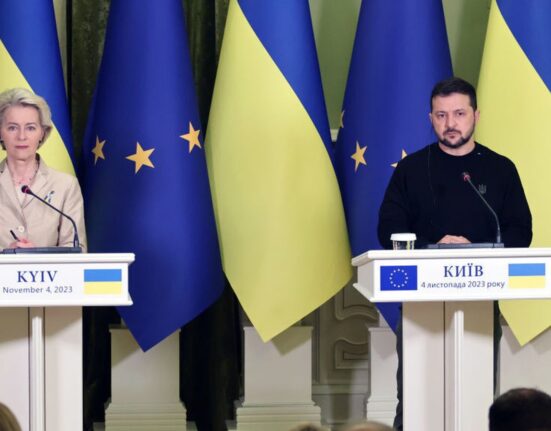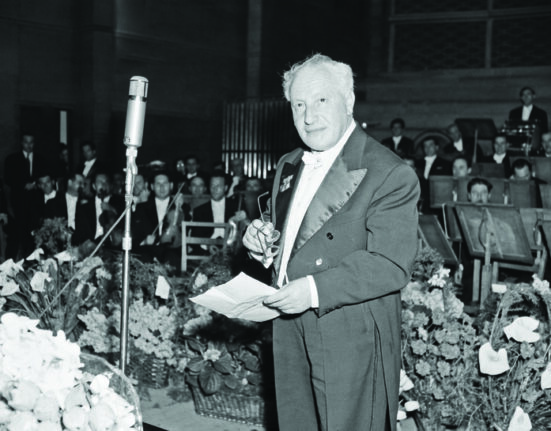Kenya: Kibera Fashion Week
Art is a universal language that all peoples of the world understand and speak. Whether poetry, music and even fashion, art creates links and helps to overcome prejudice.
Art fosters inclusion, respect, dignity and freedom of expression. Thanks in part to the European Union (EU), there are special places around the world where people can freely express themselves, in the European Spaces of Culture.
Under the aegis of the European Union National Institutes of Culture (EUNIC), the European network of organisations engaging in cultural relations, the EU is co-funding artistic projects which are spread around the globe.
Through a range of cultural endeavors, the program aims to address topics that are equally relevant for the people of the EU and our local partners. The topics are as diverse as climate change, democratic values, human rights, inclusion, decolonization and digitalization.
To mark the World Heritage Day today – during the 75th anniversary of the Universal Declaration of Human Rights (Human Rights 75) – we want to pay tribute to some of those artists, performers and defenders of human rights who animate the European Spaces of Culture.
Angola – Enter My Universe
Despite 40 years of armed conflict which has left countless landmine victims across both civil society and soldiers, disability and impairment are topics that are still rarely addressed in Angola. In calling for a much-needed public discussion about the matter, the Enter My Universe festival draws attention to the difficulties people living with disabilities face in Angola. It has a special focus on accessibility to cultural life.
Angola – Enter My Universe
The festival aims at tearing down the borders between different universes. To guarantee visibility, the inclusive arts festival with workshops, exhibitions, screenings and policy roundtables will bring together Angolan and European artists to co-create in townships such as the neighbourhood Cazenga and the city centre of Luanda.
This project will premiere on stage artists living with disabilities. This will directly address potential decision makers, but also expand the theatre of the Cazenga-based art centre ANIM’ART to meet the needs of persons living with impairments, creating Angola’s first fully inclusive and accessible art venue.
China: More than Human
More Than Human is a festival to discuss and celebrate diversity all along the spectrum of gender identity. As LGBTQ inclusion and expression is a core value of of the EU’s socio-political agenda, co-creation between Chinese and European artists provides grounds to invite underrepresented groups to discuss sensitive topics within programs for cultural and intellectual exchange. It will take place at various venues in Beijing in the second half of 2023 with a core 10-week programme centered around a large-scale exhibition of works by artists from Europe, China and third countries.
China – More than Human
The art works will allow both participants and audiences to imagine new ways to comprehend the ambiguous and complex realities we live in. Public activities of a more academic nature will be ongoing to complement the exhibition and its related art events. This will build bridges between audiences, communities, and cultural institutions. Through talks, podcasts, and conferences they will address diversity in cultural and social terms including isolation, displacement, environmental degradation, and mental health.
Kenya: Kibera Fashion Week
Creative industries can be a tool for increased sustainability and local growth. However, in Kenya, and especially in the Kibera settlement in Nairobi, local creatives face numerous challenges such as in market access, sourcing materials, sharing skills and international reach.
The Kibera Fashion Week is envisaged as a platform for the community to redefine fashion. Sharing new methods for sustainability, it will bring together stakeholders from around the world to challenge unethical and exploitative consumption. Not your typical fashion week, this is a year-long programme to fundamentally change the power dynamics and narratives in the fashion industry. It labels itself a fashion ‘week’ as it seeks to reinvent the format.
For example, instead of defining sustainability as upcycling second-hand clothes from Europe, local perspectives are taken into account. Combining local, sustainably sourced production with upcycling and a culture of repair establishes a slow-fashion approach that benefits the community which can be implemented worldwide, without exploitation.
This elevates European collaboration by creating co-ownership of projects with local communities, utilising and respecting local talent and assets and considering collaboration as an opportunity for both sides. The European partners will bring in their sustainability stakeholders working towards a wider long-term impact.
Morocco: Shaeirat
The Shaeirat project aims to build a regional and international network in the MENA region that will organise public bilingual poetry performances of Arab women poets performing their own works. The objective is to encourage and strengthen the exchange of poetry and cultural performance within Arabic speaking societies as well as in Europe.
The project will create the first editions of Arabic International Performed Poetry festivals in three Arab countries: Morocco, Egypt, Algeria. The poetesses joining Shaeirat Project will not just perform their poetry also in other countries than in the ones they’re living in, they will equally be involved in the programming, mediation, and promotion of the performances before and when they come to their own countries.
Morocco – Shaeirat
All performances will be accompanied by a variety of meetings, workshops, and mediations will be set up with different partners and audiences (the education sector, the book chain, etc.). One of the driving forces is the translation of this variety of Arabic poetry into various languages to reach out to EU member states and their neighbourhood. Cooperation with the European partners will support access of Arab poetry and poetesses to institutions and contexts in Europe. In turn, this recognition in Europe will enhance the status of the artists and their works in the MENA region.
Uruguay: Sin Límites (2022)
The Sin Límites festival in 2022 was Uruguay’s the first ever festival dedicated to arts and inclusion. Sin Límites invited inclusive artistic companies from Europe and South America. The programme, centring inclusion and accessibility on all levels, included performances, art residencies, workshops and research on inclusivity. It was joined by European and Latin American artistic companies and artists living with and living without disabilities.
One of the main concerns of the festival was to address the key challenges that people living with disabilities experience in accessing cultural life in Uruguay.
Uruguay – Sin Limites
While inclusion is already well established in Uruguay’s public agenda and supported by institutions, accessibility is not yet fully implemented, especially in the fields of art and culture.
This message for disability rights and social inclusion also fully aligns with the support of the EU Delegation in Uruguay and its agenda for promoting human rights.
As one of the direct results of the festival’s announcement, the Uruguyan government has already established accessibility and inclusion in culture as an official item in its agenda.







